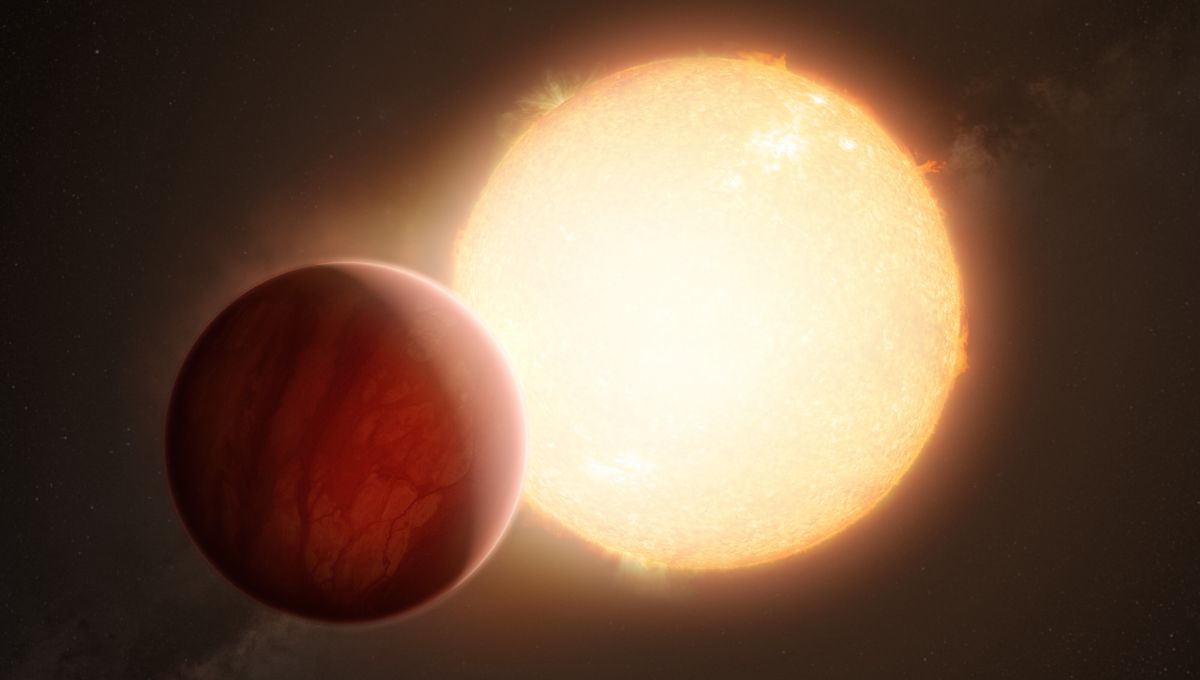
Astronomers have discovered something puzzling in the atmospheres of two exoplanets: barium. The 56th member of the periodic table is the heaviest element ever discovered in the atmosphere of an exoplanet, detected in the upper layers of two peculiar worlds, both ultra-hot Jupiters: WASP-76 b and WASP-121 b. And we’re not exaggerating when we say peculiar. Scientists think it rains iron on WASP-76b, and liquid sapphires and rubies might be falling on the night side of WASP-121b.
These gas giant exoplanets orbit extremely close to their stars, much closer than Mercury is to the Sun. They reach incredible temperatures of over 1,000°C (1800°F), hot enough to melt and vaporize metals, including barium. Although it’s unclear how the barium got so high up, given that it is 2.5 times heavier than iron.
“The puzzling and counterintuitive part is: why is there such a heavy element in the upper layers of the atmosphere of these planets?” lead author Tomás Azevedo Silva, of the University of Porto and the Institute of Astrophysics and Space Sciences in Portugal, said in a statement.
“Given the high gravity of the planets, we would expect heavy elements like barium to quickly fall into the lower layers of the atmosphere,” added co-author Olivier Demangeon, a researcher in the same institutions.
The presence of barium and the question of how it was transported to the upper atmosphere suggests that we might understand less about these planets’ atmospheres than we previously thought. Ultra-hot Jupiters are inflated due to their high temperatures which are extremely advantageous to study their atmospheres.
“Being gaseous and hot, their atmospheres are very extended and are thus easier to observe and study than those of smaller or cooler planets,” Demangeon explained.
WASP-121b is located 850 light-years from Earth, while WASP-76b is located 650 light-years away. The team used the ESPRESSO instrument on the European Southern Observatory’s Very Large Telescope in Chile to observe the planets. The light of their respective stars filters through the enlarged atmospheres of WASP-76 b and WASP-121 b allowing astronomers to work out the composition, including the discovery of barium.
“This was in a way an ‘accidental’ discovery,” added Azevedo Silva. “We were not expecting or looking for barium in particular and had to cross-check that this was actually coming from the planet since it had never been seen in any exoplanet before.”
The study is published in Astronomy & Astrophysics.
Source Link: Heaviest Element Yet Detected In Exoplanet Atmospheres Where It Rains Iron And Jewels